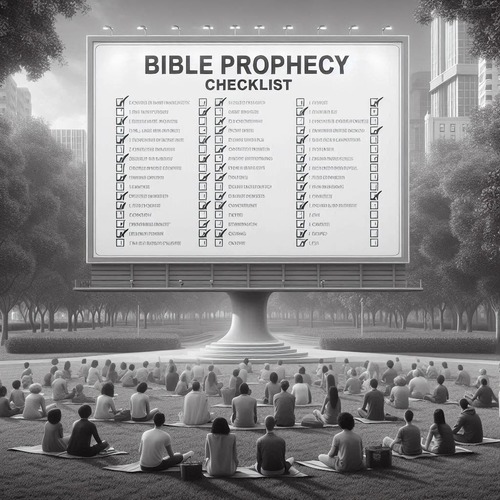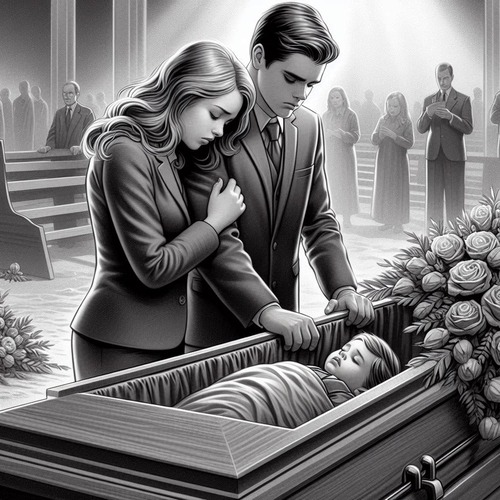Was There Death Before the Fall?
The question of whether death existed before Adam’s fall has puzzled Christians for centuries. Did lions hunt gazelles in Eden? Were there fossils beneath Adam’s feet? This isn’t merely an academic debate—it touches the heart of how we understand Scripture, creation, and the gospel itself.
THE HEART OF THE MATTER: WHAT KIND OF DEATH?
When Scripture declares “sin entered the world through one man, and death through sin” (Romans 5:12), we must ask: what kind of death is Paul describing? The answer shapes everything.
Paul’s context in Romans 5 is unmistakably about humanity. He’s contrasting Adam and Christ, explaining how sin and death entered the human experience. The Greek word thanatos (death) here refers primarily to the spiritual separation and physical mortality that became humanity’s inheritance through Adam’s disobedience.
This interpretation aligns with Ephesians 2:1, where Paul describes unbelievers as “dead in your transgressions and sins”—clearly spiritual death. The Bible presents death as multifaceted: spiritual separation from God, physical mortality, and ultimately eternal judgment.
WHAT GENESIS ACTUALLY REVEALS
A careful reading of Genesis 1-2 suggests biological processes, including what we might call “death,” were part of the original creation:
Plants as Food: Genesis 1:29-30 describes both humans and animals eating plants. For plants to serve as food, they must be harvested, cut, and consumed—a form of biological death that God explicitly ordained as “very good.”
The Tree of Life: Genesis 2:9 mentions the tree of life in Eden’s centre. Why would immortal beings need a tree of life? The very presence of this tree suggests continued life required ongoing sustenance. After the fall, God prevents access to this tree “lest he eat and live forever” (Genesis 3:22), implying physical death was now certain without this divine provision.
Natural Processes: When God calls creation “very good” (tov me’od in Hebrew), He’s declaring it perfectly suited for its intended purpose—not necessarily free from all forms of biological death. A world where lions were designed with sharp teeth and claws, where plants reproduced through cycles of growth and decay, reflects functional perfection, not the absence of natural processes.
THE SCOPE OF THE CURSE
Genesis 3 describes the consequences of human rebellion, but notice what it emphasises: the ground will resist human cultivation, childbirth will involve pain, and humanity will return to dust. The curse primarily affects human relationship with creation, not creation’s fundamental nature.
Romans 8:20-22 speaks of creation being “subjected to futility” and “groaning.” But this passage focuses on the cosmic impact of human sin—the disruption of the harmony between image-bearers and the world they were meant to steward. It doesn’t necessarily mean that all biological death began with Adam’s fall.
REFORMED WISDOM ON CREATION
John Calvin, commenting on Genesis, noted that while the fall certainly brought death to humanity, the natural processes of the animal kingdom may have operated differently. The Westminster Confession of Faith (6.2) carefully describes how the fall affected “all mankind,” emphasising human nature and its consequences.
This Reformed approach recognises Scripture’s primary concern is theological, not biological. The Bible addresses the spiritual reality of death’s entrance into human experience without necessarily describing every detail of pre-fall natural history.
ADDRESSING COMMON CONCERNS
- “But what about God’s declaration of ‘very good’?” God’s declaration in Genesis 1:31 affirms creation perfectly fulfilled its intended purpose. A world with natural cycles, including the biological death of non-image bearers, could still be functionally perfect for God’s plans.
- “What about the lion lying down with the lamb?” Isaiah 11:6-9 uses prophetic imagery to describe the future kingdom’s peace. This passage may be symbolic of the harmony that will characterise Christ’s reign, not necessarily a literal description of either the original creation or the final state.
- “Doesn’t this undermine the gospel?” Not at all. Christ’s victory over death remains complete and glorious. He conquered spiritual death through justification, will defeat physical death through resurrection, and will eliminate eternal death through His final judgement. The gospel’s power doesn’t depend on whether animals died before Adam sinned.
WAS THERE DEATH BEFORE THE FALL? LIVING WITH HUMILITY AND HOPE
Scripture clearly teaches human death—both spiritual and physical—entered through Adam’s sin. On this point, we must be absolutely clear. But regarding the broader questions of natural history and animal death before the fall, we can hold our conclusions with appropriate humility.
What matters most is not settling every detail about pre-fall biology, but understanding the gospel’s magnificent truth: in Christ, death’s power is broken. “The last enemy to be destroyed is death” (1 Corinthians 15:26). Whether death touched the animal kingdom before Adam’s fall or not, we know Christ’s resurrection guarantees our own victory over the grave.
The God who spoke creation into existence, who walked with Adam in the cool of the day, and who sent His Son to redeem fallen humanity is the same God who holds every sparrow in His care. We can trust His wisdom in both creation and redemption, knowing His ways are higher than our ways. In Christ, death no longer has the final word—and that truth remains glorious regardless of what happened to the animals before Adam’s fall.
“For as in Adam all die, so in Christ all will be made alive” (1 Corinthians 15:22). This is the hope that sustains us, the truth that transforms us, and the gospel that saves us.
WAS THERE DEATH BEFORE THE FALL? RELATED FAQs
What did historic Reformed theologians believe about whether there was animal death before the fall? John Calvin suggested while human death entered through sin, the animal kingdom may have operated under different principles from the beginning. He noted in his Genesis commentary Scripture’s focus is on humanity’s spiritual condition, not comprehensive natural history. Calvin emphasised when God describes His handiwork as “very good”, the declaration concerned creation’s fitness for its intended purpose. This could include natural processes such as predatory animals killing other species.
- How do modern scholars approach this question? John Frame argues Scripture doesn’t explicitly address whether animals died before the fall, so Christians can hold different views while maintaining biblical authority. Vern Poythress emphasises Genesis 1-3 uses “literary artistry” to convey theological truth rather than providing a scientific textbook account of creation and the fall. Both scholars stress the primary biblical concern is human spiritual death, not zoological details about Eden.
- What about the apparent design of predatory animals: weren’t lions always meant to hunt? Many Reformed thinkers note carnivorous animals show intricate design features (sharp teeth, claws, digestive systems) that seem purposefully created for hunting. RC Sproul suggested God may have designed animals with these capacities from the beginning, as part of the natural order’s “very good” functionality. This view sees predation as part of God’s wise design rather than a corruption of original herbivorous intent.
How does this view handle the geological evidence of death in the fossil record? Reformed scholars who accept pre-fall animal death see no conflict between Scripture and geological evidence of ancient death. They argue God could have created through natural processes over time, with death being part of the original created order for non-image bearers. This position maintains Scripture speaks authoritatively to theological matters while allowing scientific investigation of natural history.
- What about thorns and thistles—weren’t these part of the curse in Genesis 3:18? The curse in Genesis 3:18 specifically mentions thorns and thistles in relation to human agriculture and toil. Many Reformed exegetes argue this refers to the ground’s resistance to human cultivation rather than the first appearance of thorny plants. The curse may have repurposed existing plant defences to frustrate human labour, emphasising the broken relationship between humanity and creation.
- How do Reformed churches officially address this question in their confessions? Most Reformed confessions (Westminster, Belgic, Heidelberg) focus on the fall’s effects on humanity rather than specifying pre-fall conditions for animals. The Westminster Confession states Adam’s sin brought death to “all mankind,” not explicitly to all creation. This leaves room for various Reformed positions on animal death while maintaining clear teaching about human spiritual death through sin.
Does believing in pre-fall animal death affect the doctrine of Christ’s cosmic redemption? Reformed theologians who accept pre-fall animal death still affirm Christ’s cosmic work, but understand Romans 8:19-22 differently. They see creation’s “groaning” as referring to the disruption caused by human sin’s cosmic effects rather than the introduction of all death. Christ’s redemption still encompasses the whole creation, restoring the harmony between redeemed humanity and the natural world, culminating in the new heavens and new earth.
WAS THERE DEATH BEFORE THE FALL? OUR RELATED POSTS
Editor's Pick

Do Christians Need Holy Shrines? Why the Reformed Answer Is No
Walk into a medieval cathedral and you'll encounter ornate shrines, gilded reliquaries, and designated "holy places" where pilgrims gather to [...]

I Want To Believe, But Can’t: What Do I Do?
"I want to believe in God. I really do. But I just can't seem to make it happen. I've tried [...]

BC 1446 or 1250: When Did the Exodus Really Happen?
WHY REFORMED SCHOLARS SUPPORT THE EARLY DATE Many a critic makes the claim: “Archaeology has disproven the biblical account [...]

Does God Know the Future? All of It, Perfectly?
Think about this: our prayers tell on us. Every time we ask God for something, we’re confessing—often without realising it—what [...]

Can Christian Couples Choose Permanent Birth Control?
Consider Sarah, whose fourth pregnancy nearly killed her due to severe pre-eclampsia, leaving her hospitalised for months. Or David and [...]

Bone of My Bones: Why Eve Was Created From Adam’s Body
"This at last is bone of my bones and flesh of my flesh!" Adam's joyful exclamation upon first seeing Eve [...]

Is Calvinism Fatalism in Christian Disguise? Think Again
We hear the taunt every now and then: "Calvinism is just fatalism dressed up in Christian jargon." Critics argue Reformed [...]

Can Churches Conduct Same-Sex Weddings?
In an era of rapid cultural change, churches across America face mounting pressure to redefine their understanding of marriage. As [...]

Gender Reassignment: Can Christian Doctors Perform These Surgeries?
In the quiet of a clinic, a Christian physician faces a challenging ethical question. A patient sits across the desk, [...]

‘What Sorrow Awaits You Who Are Rich…’: What Does Jesus Mean?
The words hang in the air like a sword over comfortable Christianity: “What sorrow awaits you who are rich, for [...]
SUPPORT US:
Feel the Holy Spirit's gentle nudge to partner with us?
Donate Online:
Account Name: TRUTHS TO DIE FOR FOUNDATION
Account Number: 10243565459
Bank IFSC: IDFB0043391
Bank Name: IDFC FIRST BANK






